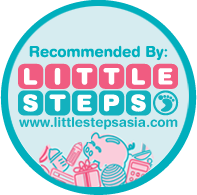
Symptoms of Stress
How do you know you’re stressed? That might seem like an odd thing to ask — after all isn’t it obvious? For some people, yes, but it’s not necessarily the case. In fact, I meet many people who I can clearly see are experiencing the effects of stress but who are either unaware, in denial, or they are simply choosing to ‘push through’, often not realising there are things you can do to help support yourself and feel more in control once more — some that are really easy.
For many, the ongoing challenges of modern life is just the ‘new normal’, so you put up with it until you can escape somewhere on holiday — then it’s back to the usual mayhem. But the current global situation means the pressure is still on for most people (probably everyone), but there are no holidays in sight. What’s concerning to me, and many other healthcare practitioners, is that the physiological effects of ongoing stress (or lots of ‘busyness’) can become harmful emotionally, psychologically and even physically.
The stress myth
That there is nothing you can do is a myth — I know because I’m human and I feel the effects of stress and pressure like anyone else. However, I can also spot the signs of stress and then do something about it. As a herbalist, this means turning to herbs (at least temporarily), along with other strategies, so I feel calmer and back in control of how I’m feeling despite the external pressures — you can too.
Stress-related illness is a reality, so doing something about any stress you are experiencing is not only desirable but essential. But the question remains — how do you know you are experiencing stress to the point that you are not really coping after all? The answer is, it varies. Some people become loud and obvious about their stress; others become quiet. Some are completely unaware that their feelings or behaviours are due to stress — because stress can be insidious, manifesting in weird or unexpected ways.
Fortunately, there have been many who have studied this, and continue to do so, therefore I am sharing some of their findings below, so you know what to look out for (in yourself or maybe your loved ones). In a nutshell, when stress becomes too much for the mind and body to handle, it will show up in one of the following ways:
- Behavioural symptoms
- Emotional and/or psychological symptoms
- Physical symptoms
Behavioural symptoms
These people may find it hard to manage their time properly, maybe avoiding significant obligations or becoming a ‘workaholic’ (or even more so than usual). It’s also not uncommon for stress to manifest as forgetfulness, a lack of focus or concentration and/or feeling restless and easily distracted. Noticing an overreliance on alcohol, caffeine or other drugs is another tell-tale sign there is a problem — particularly if the first thing you do after work is pour a drink (and maybe finish the bottle every night).
Emotional/psychological
When stress is manifesting in emotional/psychological ways you may experience outbursts of anger and/or frequent irritation; or you may feel nervousness, excess worry, fears and anxiety. Sometimes it’s the opposite and people feel apathetic, or their mood starts to dip (even experiencing depression). Mood swings are a common sign stress has become too much.
Physical manifestations
Hard to handle stress or worry that shows up physically can be seen in all ages, but particularly in children and teenagers — for example, you may see weird or persistent stomach issues, sickness/nausea, aches and pains. Adults get the same, but may also complain of low energy, headaches, sexual dysfunction, appetite changes, insomnia and heart symptoms such as palpitations. Panic attacks can suddenly appear in some people, others may complain of a seemingly unending run of ‘every cold going around’ as the immune system become less capable of healthy function.
Take charge of your wellbeing
If you are physically unwell then, of course, get your symptoms checked out by your GP to rule out any disease process (particularly for children and teens). If you are feeling very overwhelmed or depressed, then speaking with a counsellor or psychologist may be a wise move also. But in the absence of any disease (or even if you are unwell but the stress factor is making it worse), there are some simple things you can do to take back control and help yourself build more tolerance to life’s stressors once more.
Proven stress remedies
Whilst a healthy diet contributes to overall wellbeing — this is not an article about what to eat. Instead, the following are some proven strategies to help tackle stress. It comes down to three things:
-
Breathe
If you find yourself feeling acutely ‘squeezed’ or confronted at work or home (or anywhere) — the best thing is to rescue yourself from the situation. Find some space (go outside, into another room or even the work bathroom if needs be) and take a few minutes to simply breathe.
Similar breathing techniques are used by paramedics and the military who are faced with tough, stressful situations, so these are tried and tested methods to induce the body’s natural relaxation response — the perfect antidote to stress.
- Start by holding your breath and counting to 5 or 7
- Breathe out slowly and mentally say ‘relax’ or ‘calm’
- Inhale again slowly counting to 5
- Exhale slowly counting to 7
- Repeat this pattern, breathing in for 5 and out for 7, for as long as you can (3 to 5 minutes is good)
Having a longer exhalation than your inhalation is a way to send signals to your brain that “all is well”, which in turn signals your body and stress axis to regain a sense of calm. Repeat this anytime — even try it daily as a breathing meditation — over time you will become adept at calming yourself quickly and can also become less reactive to stressful moments to begin with.
-
Move
Regular movement is not just for the body, but an established way to improve mental wellbeing. For some people a run or some other vigorous activity is the perfect way to settle; for many others, a walk will do the same. Aim to prioritise just 30 minutes a day to walk anywhere (though in nature, amongst trees or in a park, is best) even if you are unable to, or not interested in the gym or a yoga class (the latter of which, by the way, comes in so many forms you may find one you really enjoy if you try!).
-
Request a bespoke herbal tonic
Herbal medicine has a lot to offer when it comes to stress. Many herbs work on receptors in your brain, allowing your natural ‘calming’ brain chemical known as GABA to act. Plus, there is a whole class of herbs termed ‘adaptogens’, which can help you ‘adapt’ to stress better — more specifically they can help increase mental and physical performance. Each herb is unique in its actions and how it affects each person, so buying ‘off the shelf’ is rarely the best move as you are not ‘generic’, and nor will your needs be.
Herbalism is both an art and a science, so my recommendation is to speak to a Naturopathic Herbalist and ask them to mix up the right combination for you — it doesn’t have to take more than a quick consult if you are not on any medications or have any allergies and you too can enjoy the benefits of having your own bespoke ‘tonic’ to get your through until life settles again. (Please note that aside from some specific circumstances, most herbs are unsuitable for use during pregnancy.)
If there is one thing to take away from this article, it is to prioritise your current and long-term health by taking note of how stress may be affecting you and taking steps to do something about it — your future self will thank you.
by Jo Herbert-Doyle, Naturopath


